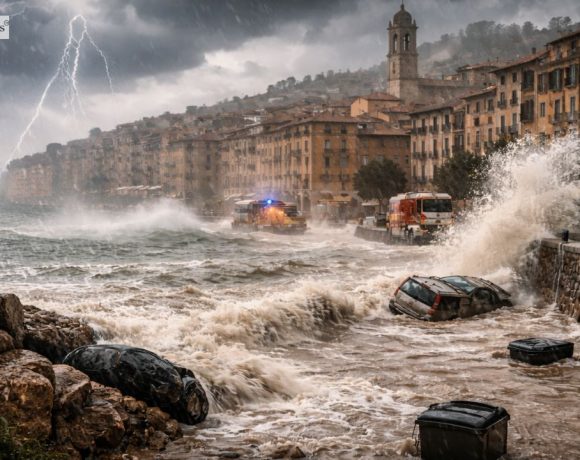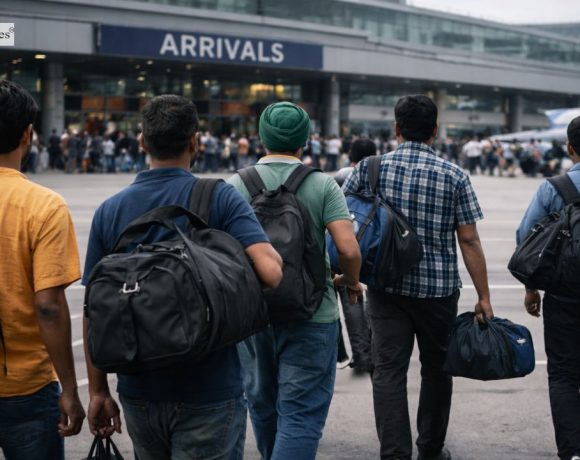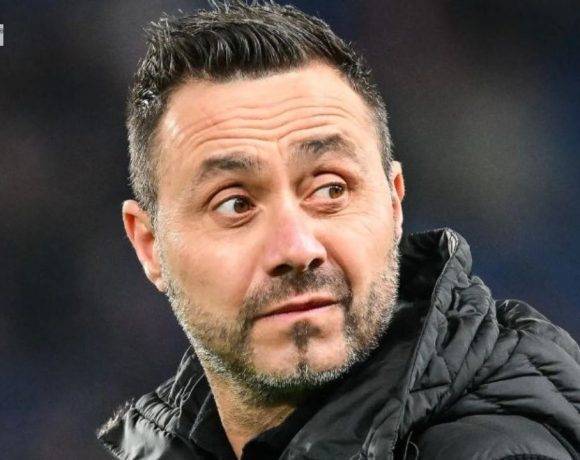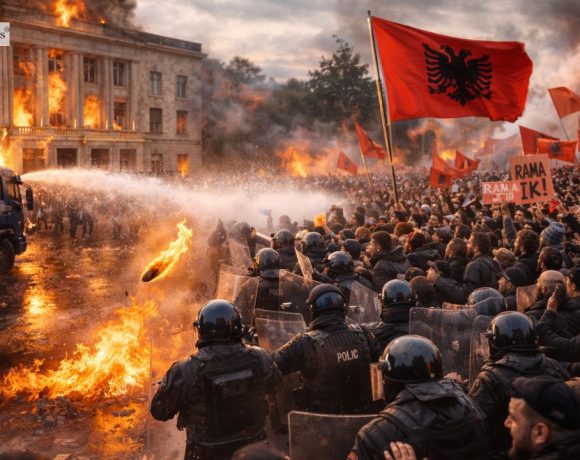
Spain and Portugal remained on high alert as heavy rain and powerful winds swept across the Iberian Peninsula, causing widespread disruption. Trees were uprooted, transport services were interrupted and schools were closed in several regions. In northeastern Spain’s Catalonia region, one person was left in serious condition after being struck by a falling tree, with at least four others reported injured.
Spain issued its highest red weather alert in Galicia, Cantabria and the Basque Country following the arrival of Storm Nils — the eighth storm to hit the country this year. Authorities in Catalonia suspended classes, sporting events and some non-essential healthcare services as wind gusts exceeded 105 km/h, disrupting road and rail networks. Around 40 flights at Barcelona’s El Prat airport were cancelled, while warnings were issued about waves reaching up to nine metres along parts of the coast.
In Portugal, an “atmospheric river” brought intense rainfall, particularly in northern areas, prompting the evacuation of about 3,000 residents. A section of the A1 motorway near Coimbra collapsed after flooding weakened its foundations, and officials said repairs could take weeks. While Storm Oriana is not expected to directly strike mainland Portugal, authorities warned of continued heavy rain and strong winds in the coming days.
Pic courtesy: google/ images are subject to copyright









